Why Cosine
Cosine is the non-SDHI fungicide for early use on primary powdery mildew in apples and pears – when spores have overwintered in the buds. Effective control helps prevent disease spread and new infections in neighbouring plants.
At the same time, Cosine supports your IPM efforts with low impact on beneficials, and has a convenient 14-day PHI.
Works in two ways
You’ll discover that Cosine provides excellent curative action and lasting protection:
It acts on the plant with both penetrant and translaminar movement. Vapour phase activity ensures best results against secondary powdery mildew, usually from green cluster to July.
It acts on the fungus as a protectant and a curative.
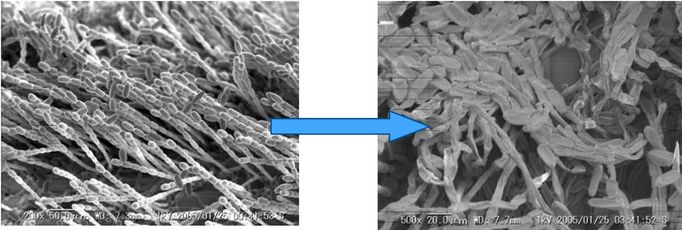
Mode of action
Cosine is invaluable as part of your resistance management strategy. Its active substance, cyflufenamid, gives you extra application options. It’s in the amidoxime chemical group (FRAC U6) and has no known cross-resistance with any chemical classes used against powdery mildew.
You’ll benefit from multi-stage disease control. Cyflufenamid is effective against the formation of haustoria, colonisation of plant tissue, growth of mycelium and the formation of conidiospores.
Proof
Trials show that Cosine gives excellent control of powdery mildew at key growth stages.
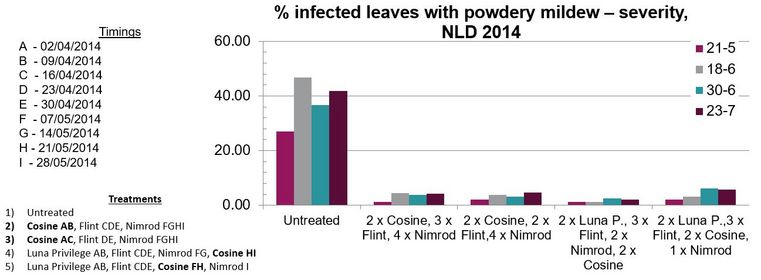
Easy tank-mixing
Cosine is flexible: you can mix it with Karma and a wide range of fungicides and insecticides in the table. It’s the strongest non-SDHI for top fruit and can be mixed with apple scab-only products such as Delan Pro.
To aid tank-mixing, Cosine is rain-fast after just one hour and stable at pH 4-7 (DT50 -288d pH9).
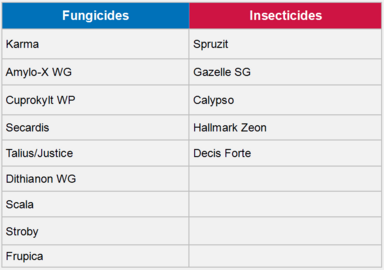
How Cosine and Karma work with secondary powdery mildew
Secondary powdery mildew on apple leaves, average severity on last 5 leaves. Var. GalaxyGala.

When to apply
Use from early green cluster to end of new growth, with two applications permitted each season. Curative vapour activity against secondary powdery mildew is best achieved at above 25°C. Your advisor will confirm what is appropriate.

| BBCH 00 | BBCH 07 | BBCH 10 | BBCH 39 | BBCH 57 | BBCH 65 | BBCH 69 | BBCH 71 | BBCH 74 | BBCH 79 |
| Dormant | Bud burst | Mouse Ear | Green Cluster | Pink Bud | Flowering | Petal Fall | Early Fruit | Fruitlet | Harvest |
Why Karma for top fruit and vines
Use Karma biorational fungicide for contact control of apple scab (Venturia inaequalis) and Botrytis cinerea in vines (EAMU 2016 1327).
Karma is ideal for ICM systems. It’s based on an approved food additive (potassium hydrogen carbonate), so there are no residues or MRLs, and just a one-day PHI.
Mode of action
Karma enhances resistance management through multi-stage activity.
It inhibits mycelial growth and causes total collapse of spores by dehydration, pH and specific bicarbonate/carbonate ion effects. What’s more, it helps prevent infection by disrupting the release of hydrolytic enzymes used by fungi to infect plants.
In addition, powerful built-in surfactants (wetters and stickers) promote efficacy, coverage and rain-fastness.
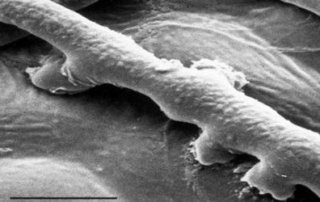
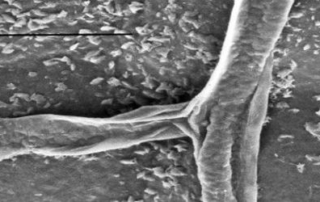
Proof
Trials show that Karma is effective against both leaf and fruit scab.

When to apply
For best results apply preventatively at key times. Do not use during the flowering period, on fruit smaller than 10 mm or in the last five weeks before harvest. Applying when leaves are wet can maximise Karma’s efficacy. Your advisor will confirm what is appropriate.

| BBCH 00 | BBCH 07 | BBCH 10 | BBCH 39 | BBCH 57 | BBCH 65 | BBCH 69 | BBCH 71 | BBCH 74 | BBCH 79 |
| Dormant | Bud burst | Mouse Ear | Green Cluster | Pink Bud | Flowering | Petal Fall | Early Fruit | Fruitlet | Harvest |